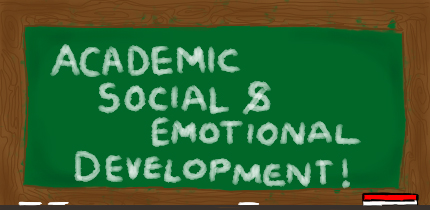High school students are still trying to shape who they are as individuals and yet need to make a decision that will define who they are at their young age and with limited support.

Fresh graduates are known to seize the first job opportunity that comes their way as they pursue their independence and begin their careers. However, for many of these fresh graduates, their first job also turns into a realization of what they don’t want to be doing with the rest of their lives. Therefore, they may end up quitting within the first year and sometimes jump from job to job early in their careers. Because of this, they have earned the reputation of being reckless and unreliable. However, has anyone stopped to consider the reasons why these fresh graduates behave this way?
While it is possible that some of them may indeed be reckless, which could be due to their maturity or the values that they have been brought up with, many others have a valid and genuine reason.
At their age, many of these fresh graduates are still learning about who they are, where their interests lie, and what they are capable of achieving. And yet, they already have the burden of deciding on a career path as high-school students with even less self-awareness and limited support or resources to be able to make an informed decision.
Back in my time, we did not have any support on choosing our university major and these decisions were generally made by parents who considered details such as where the university is located, the cost of education, and choosing a major that would prove to be stable and a return on investment in the long run. Studying abroad was an option for only a few and the privileged. Government support with scholarships for eligible Emirati students made it easier for parents to send their children abroad for further education, but ultimately, the decision on what to study had little to do with the child’s interests, strengths, and potential.
I did some research to find out if things have changed for the current generation, and I found that in addition to the continued financial support by the government to Emirati students, there are University Fairs held to help students find out more about the different programs and facilities being offered. Some schools even arrange for short internship opportunities where students in their final year get to shadow employees within an organization that has volunteered to support such initiatives.
However, it was disheartening to find out that nothing has changed when it comes to supporting students to better understand themselves and their aspirations.
Most schools in the UAE have counselors these days, and this is a big step in offering support to students with any needs they may have. But there should be a proactive approach taken to support high-school students in their final years before they embark onto their next chapter. There needs to be active involvement between students, parents, teachers, and school counselors to review the relevant information at hand and discuss the possible career options. It is the right of every high-school student who has invested their time in their education to now be given the opportunity to continue this path in the best way possible.
There is a multitude of assessment and development tools designed specifically for this purpose and they are robust, valid, and reliable. There are tests available to measure personality, strengths, and occupational preferences which can offer more concrete feedback and guidance for students when making this life-altering decision. School counselors, if not already trained, can gain certification to be able to administer these tests and provide feedback.
In some parts of the world, it is mandatory for students to go through these assessment centers and this is something that could be introduced in the UAE as well. The results of these assessments need to be reviewed alongside their school reports for a holistic view of the student. Good grades may not always be indicative of what the student truly enjoys and wants to do in their careers, so it is important to review these pieces together to distinguish between skills, hobbies, and passion, and then narrow down to career streams that are in line with their individual preferences and aspirations.
It is equally important for parents to be able to understand these results so that they do not push their children towards career options merely because they are seen as safe and stable, but instead towards a path that will allow their children to flourish and have rewarding careers. While parents have the best interest of their children in mind, and think they know what’s best for them, they may not always be right. Having such tools at hand can encourage communication and understanding and break the barriers that may be holding their children back from a path that is best suited for them.
We need to proactively use the resources available to us to support the next generations instead of pushing them towards career paths that they may later regret or feel stuck in. For some, they may realize their true potentials and passion only when they have gone too far to turn back. Not everyone may have the means or capability to change their careers midway and it is up to us as parents, educators, and counselors to ensure that we offer the right support at the right time.
Sign up to Sail Newsletter
Never miss another article!
Thank you for subscribing.
Something went wrong.

It’s so interesting to see more and more people bring attention to an underrated topic!